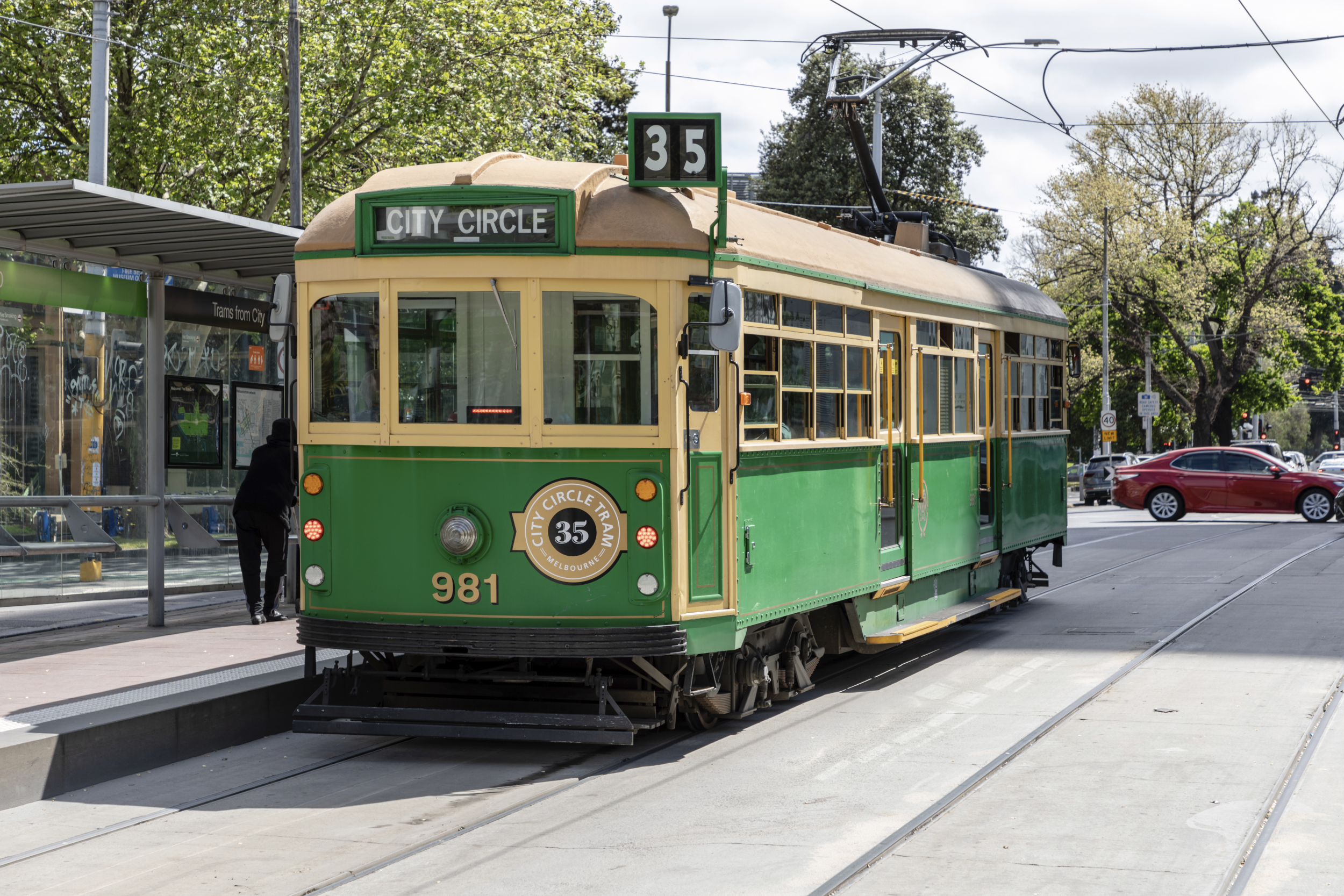OPINION
Tap off: Why Melbourne’s public transport system doesn’t need ticket cops
You haven’t truly experienced Melbourne until you’ve had an unsavoury experience with a public transport ticket inspector.
Known as authorised officers, they’re a part of the fabric of the city, patrolling the network to ensure you pay the fare. They’re dressed in a SWAT-like outfit, donning black vests, cargo pants, and hard boots. They have a holster strapped onto their belt (to carry a card reader). Their demeanour is typically stern, and they always congregate in groups. Even when they’re patrolling undercover – where they trade in their black vests for oversized black hoodies – they’re as easy to spot as a horse in a haystack.
Their appearance and attitude could easily lead you to believe that they’re police officers, which is probably not a coincidence, and it’s long been felt by many Melburnians that this new generation of fare cops is a calculated, cheap tactic by the Victorian government to stop evasion through intimidation.
Earlier this month, a Melbourne teenager created a fake Public Transport Victoria poster that was plastered across a number of public transport stops that read, “Don’t touch your Myki on or off. Authorised officers are violent thugs that target minorities. Fines are only a punishment for being poor. Refuse to pay. They can’t fine us all.”
The allegation that authorised officers discriminate against minorities and poor people struck a nerve across the city. Hundreds of people commented on this masthead’s social media accounts to share similar experiences, many of whom were young students and/or minorities.
Having lived in Melbourne all my life, I have been an unintentional fare evader. I was 19 years old when I cried at Melbourne Central Station in front of a gaggle of authorised officers, trying to explain my situation. I was running late for university and after touching off, four officers approached me. Their tone was immediately harsh as I dug around my backpack for my laminated concession card, to no avail. They began writing a fine of $288 as I begged, pleaded, and offered up proof that I was a student. At the time, I couldn’t afford a takeaway coffee, let alone a fine.
My tears developed into a panic attack and an onlooker watching said, “run, they can’t chase you”. I cried some more and tried to push past them, but two of the inspectors used their bodies to stop me. After 15 minutes of embarrassment, they let me go. The entire experience was demoralising; authorised officers in Melbourne have a special way of making you feel like you’ve committed a crime worthy of jail time, even when you haven’t, or genuinely haven’t meant to.
According to a 2016 study led by Professor Graham Currie, a public transport researcher at Monash University, that looked into the psychology of fare evasion, there are four types of fare evaders: accidental evaders, “it’s not my fault” evaders, calculated risk-taking evaders, and career evaders.
Though I was an “it’s not my fault” evader, we’ve all seen the accidental. They might forget to touch on when they jump on a tram, or can’t touch on before the train doors close. Then, a deep feeling of embarrassment when they’re stopped by officers, who ignore requests to rectify the situation. Do these people, usually someone late for work or not a tourist not realising they left the free tram zone one stop earlier, really deserve a $288 fine?
Most of the revenue lost in Victoria due to fare evasion comes from the career evaders, who were the smallest group of the four. These people were found to be typically wealthy and chose to evade for the challenge rather than being unable to afford the ride. Of this group, Currie said, “We’ve got this archetypal, old view that it’s a young person or a drop-out that’s doing bad stuff. No, that’s not what’s going on.”
What is going on, though, is that despite research showing the majority of fare evaders not having criminal intent, they are still being treated as though they do by the Victorian government’s authorised officers.
The findings of Currie’s research, which was commissioned by PTV, saw in an increase in the number of authorised officers patrolling the public transport network, and posters around the city that showed an inspector alongside the slogan: “If you’re worried about being caught freeloading, you should be.” Together, the research, advertising and increase in officers has led to a decrease in fare evasion.
I don’t endorse fare evading – I think paying for a service is fair, so long as it’s worth the cost. But it’s safe to say many Melburnians believe two things: Myki is deeply flawed, and officers are too harsh.
I can respect that authorised officers are merely doing their jobs and making a living. However, we should be criticising the system they work under, which seems to resort to public shame tactics and humiliation rather than education, and the way in which they are trained to do their job.
Now that I’m older, I doubt I’d cry in the same situation. But as a young woman, did I deserve to be treated like that when I was just trying to get from A to B and made a genuine mistake by not having my concession card in my backpack?
Myki fines feel like a punishment for a system that is frustrating and difficult to use. So why is the majority still being punished for the bad behaviour of a wealthy minority who get their kicks from flirting with danger?


deleted by creator